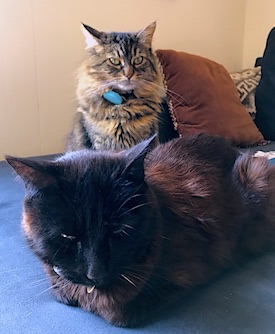
The Other Side of Divorce
- May 2020
- Hi Steph
Hey Steph. I am a fellow climber and have looked up to your values, ethic, and outdoor pursuits for a long time. Recently, I have been going through a very difficult divorce. My wife has decided to leave for reasons that I don’t fully understand and she is not willing to communicate. I have by no means been a perfect partner and have caused hurt at times. However, I genuinely want to improve my life and be the best person I can be. I was wondering if you have any advice for making it out the other side of divorce from someone you thought you would spend your life with. I feel lost, insecure, and full of self-doubt. I feel cruxed out with no protection in place. I know that you have experienced the highs and lows of relationships and the pain of loss. Any advice would be greatly appreciated. Thanks. All the best -Michael
Michael, I’m sorry to hear you’re going through a divorce. It’s an incredibly painful, grueling and lonely experience, and one of the hardest types of loss in my opinion. The most important thing to remember about divorce is that it’s going to be finished at some point, because when you’re going through it you can’t imagine it ever being over. But the feelings of rejection and abandonment have the potential to affect your life for a long time. As you are sensing, it is like any other disaster in life: you’re going to feel a lot of pain. But you can either come out of it with opportunity for growth, or a lasting feeling of loss and damage. It depends on how you choose to go through it.
Pain can’t go away immediately. My first advice for any time of loss is to eliminate all substances that alter your mindstate and your mood, from sugar to caffeine to alcohol to drugs. Drink lots of water, eat fresh foods, and walk uphill. Walking uphill will always make you see things differently, and it will help relieve your mental pain and help you sleep better. Don’t feel bad that you’re in pain, and don’t feel like you “shouldn’t” be feeling pain. When you lose something or something hurts, you feel pain. That’s how it is. Don’t be afraid of it. It will get better. You need to keep going forward and taking care of yourself as best as possible because there will be a time when this is over and you will be glad you did.
Humans need stories, it’s how our brains make sense of a chaotic universe–if you reflect for a minute on how much money Brad Pitt makes versus your doctor, you’ll realize just how much we value stories. Our brains naturally find patterns everywhere, and nothing makes our brains more bothered than a story that doesn’t make sense, or a story that doesn’t resolve. I believe this is why we often get caught in a cycle of rumination or depression when we experience loss. Loss doesn’t make sense, and it’s an abrupt break in what had been until then a very reasonable (and often very good) story. Our brains continue to replay the loss, trying to find a way in which it makes sense and the story can resolve. The important thing to realize is a story doesn’t have to have a happy ending to have an ending. All it needs is resolution to allow your brain to let go and let the story be finished. You may not get the answers you’re looking for from your ex. That’s okay. You can achieve resolution to the story on your own, and it’s your brain that needs resolution in order to go forward. I suggest you write the story of your relationship from beginning to end, for yourself. And when you’re doing it, try to write from a place of compassion for both of you. It’s possible your ex is a completely terrible person. It’s also possible she’s a truly kind person. It’s possible she’s a more complex person, as we all are. The more you can feel compassion for both of you, and write from that perspective, the easier it’s going to be to move forward emotionally. (It’s also going to help you find the strength to behave with as much dignity and integrity as possible throughout the divorce process, which is incredibly important, for your sake even more than for your ex’s, and will be one of the most powerful growth experiences of your life.) That’s not really the point though, and not what needs to be resolved. All that has to happen is that you write down a story that has a beginning, a middle and an end, because until it does, your brain will go back over and over, looking for resolution and keeping you in the pain phase for a longer time. You don’t want to stay there beyond the time you need to heal.
My last advice is the same I always give myself in times of loss, which is to remember the Sufi tenet of “joy at sudden disappointment.” In my life, every time something has happened that seemed to be the most terrible thing imaginable when it happened, it all looks very different from the future. I’m always thankful in some way that it happened, but that is never obvious at all in the beginning while the disaster is happening. Knowing this still doesn’t stop me from feeling scared or hurt or upset when loss comes, but it definitely allows me to be more comfortable (and even curious, which is a very positive emotion) while I wait to see how it plays out. Because I truly believe in joy at sudden disappointment. I’ve lived it over and over, to the point I know that’s how it works and I can believe in the joy and know it’s coming, even when I’m in the disappointment.
Humans don’t like change very much. But crisis does bring opportunity.
Take care,
Steph







